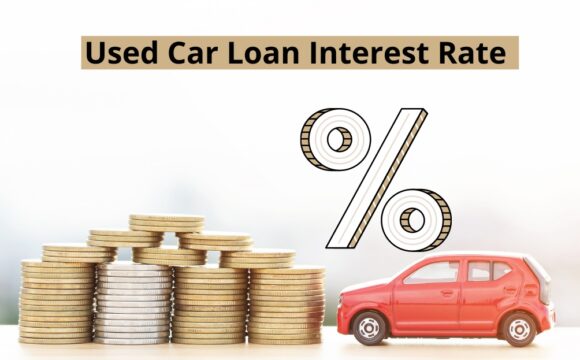In recent years, electric vehicles have taken the world by storm, offering a cleaner, more sustainable mode of transportation. Among the various electric mobility options, electric bikes, or e-bikes, have gained considerable popularity for their convenience, cost-effectiveness and eco-friendliness. However, as more individuals consider switching to electric bikes, questions regarding legal requirements, especially the necessity of driving motor insurance, often arise.
Navigating the ever-changing landscape of transportation regulations can be a challenging task. While most people are well-versed in the requirement of a driver’s licence for conventional vehicles, the rules governing electric bikes lack clarity. Additionally, understanding how to obtain comprehensive bike insurance for electric bikes can be complex and confusing. Below you can learn more about insurance policies for electric vehicles.
Do Electric Bikes Need a Licence in India?
When contemplating using an electric bike, one of the primary questions is whether it necessitates a licence to operate. In India, the general rule is that you will need a motorcycle licence if you wish to ride any electric bike. There is an exception, however, for electric bikes with a low-speed limitation.
Possessing a valid motorcycle licence grants you the authority to operate a two-wheeled motorcycle. Still, it does not extend to driving electric cars or other vehicles except electric bikes. The potential for confusion arises because terms like ‘electric motorbike’ and ‘electric bike’ are often used interchangeably, leading to misunderstandings among the general public.
You must possess a valid motorcycle licence and secure an electric bike insurance policy regardless of your electric bike type. Furthermore, it is advisable to familiarise yourself with the specific state regulations in your area, as these may vary. Additionally, the manufacturer of your electric bike can guide the legal requirements associated with electric bikes.
Electric Bikes that Do Not Need a Licence in India
In India, certain electric two-wheelers fall into a category that does not require a driver’s licence. Following the current regulations, this category includes e-bikes with a maximum power output of 250 watts or a maximum speed of 25 km/h. Furthermore, e-scooters do not meet the criteria for categorisation as a ‘motor vehicle’, thus exempting them from the license requirement and registration.
This exemption is particularly significant as it opens up opportunities for individuals who may not possess a motorcycle licence but still wish to enjoy the benefits of electric mobility. Low-speed electric bikes are a practical and sustainable choice for urban commuters and leisure riders.
Electric Bikes that Need a Licence in India
Conversely, electric bikes with a motor generating more than 250 watts or reaching a speed exceeding 25 km/h require a valid driver’s licence in India. These vehicles must also be registered with the appropriate authorities, ensuring they comply with all legal and safety standards.
It is worth noting that the distinction between electric bikes and electric scooters can sometimes blur, adding complexity to the regulatory landscape. Thus, prospective electric bike owners should carefully assess their vehicle’s specifications and ensure compliance with the relevant regulations.
Individuals considering the purchase of an electric bike may want to explore state-specific subsidies and incentives available under government programs. For instance, the FAME-II program, the second phase of a three-year subsidiary program, aims to support public and shared transportation electrification. Owners of electric bikes may be eligible for these subsidies, making the transition to electric mobility even more appealing from a financial standpoint.
Other Laws and Age Limits for Electric Bikes in India
In addition to the licence requirement, several other important laws and age limits apply to electric bike riders in India —
- Minimum Riding Age: India’s minimum age for riding electric scooters is 16 years and above. This regulation ensures that young riders have sufficient maturity and responsibility to operate electric bikes safely.
- Teenage Riders: Teenagers between 16 and 18 must undergo a mandatory test to obtain an e-scooter licence. This test assesses their knowledge of traffic rules and their ability to handle the electric bike safely.
- Engine Size Limitation: The age group of 16 to 18 can obtain an electric scooter with a limited engine size of 50 cc. This limitation ensures that young riders operate vehicles with reduced power, reducing the risk associated with higher-speed electric bikes.
- Green License Plate: The green licence plate typically identify electric two-wheeler bikes in India. These distinctive plates signify the eco-friendly nature of electric bikes and provide a visual cue to other road users.
Should you get cashless two-wheeler insurance for your electric vehicle?
Getting cashless two-wheeler insurance for your electric vehicle (EV) is a prudent and beneficial choice in today’s rapidly evolving automotive landscape. It refers to a type of insurance policy for motorcycles and scooters where the policyholder can avail of repair and maintenance services at a network or authorised service centres without an upfront payment. EVs are gaining popularity due to their eco-friendliness and energy efficiency, making them a valuable investment.
Opting for cashless insurance for your electric two-wheeler offers several advantages —
- Convenience: EV owners often value convenience and efficiency. With cashless insurance, you can have your EV repaired at authorised service centres without the hassle of paying upfront and seeking reimbursement. It speeds up the repair process, reducing downtime.
- Specialised Repairs: EVs have unique components and technology that require specialised attention. Cashless insurance typically ensures that technicians trained in handling electric vehicles conduct repairs, which can be crucial for safety and performance.
- Cost Management: Electric vehicle repairs can be expensive due to the advanced technology. Cashless insurance helps manage these costs, as you only need to cover deductibles, if applicable, rather than the entire repair bill.
- Enhanced Coverage: Insurance companies often offer specialised options for electric vehicles, including coverage for battery damage, charging equipment and related accessories. Cashless insurance allows you to access these tailored coverage options without much hassle.
Summing Up
As the popularity of electric bikes rises in India, prospective riders need to understand and stick to the legal requirements, including licensing and insurance. By complying with these regulations, one can enjoy the benefits of electric mobility while ensuring their safety and legal compliance. Moreover, opting for cashless two-wheeler insurance for your electric vehicle aligns with the modern EV ownership experience.









